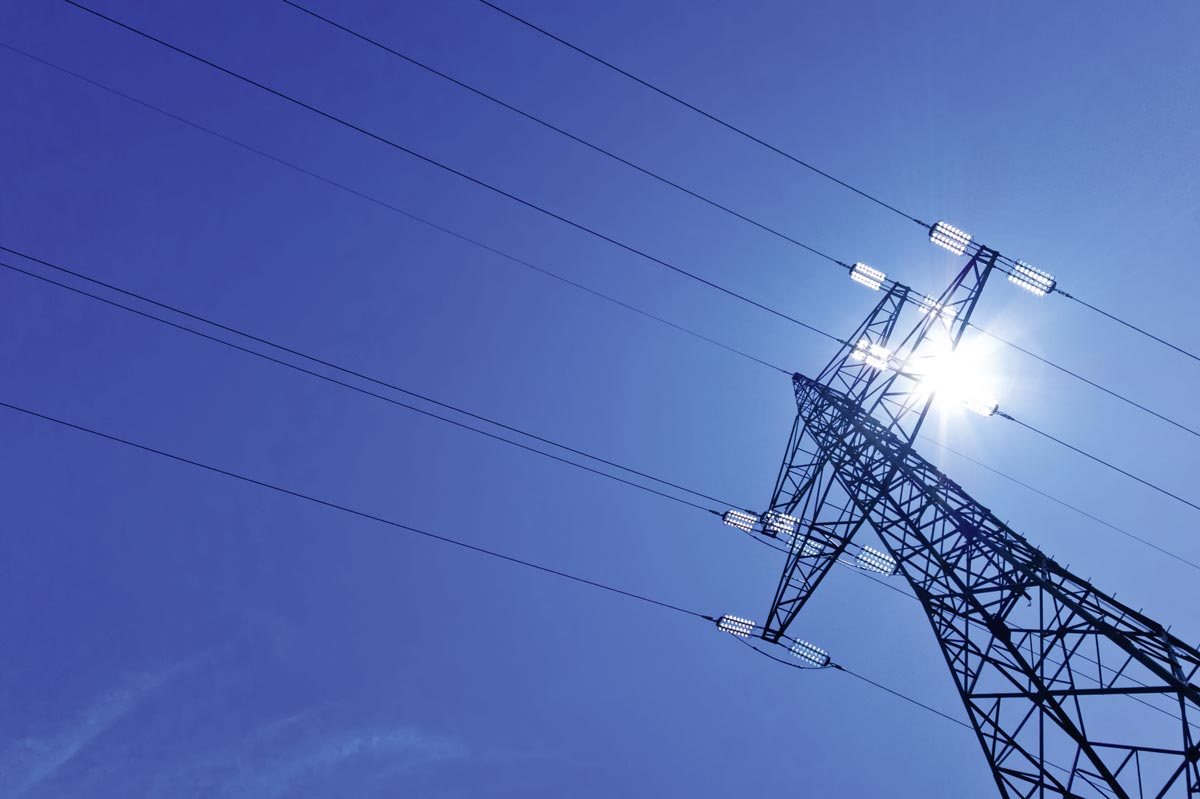Smart grid technologies and approaches can play a vital part in sustainable energy systems; they help to cope with the challenges we face as the number of local providers feeding in electricity from renewables at fluctuating rates goes up, while demand for electricity-based services increases. This is carried out by communicatively linking together particular components such as local generating and storage facilities, flexible consumers and intelligent buildings. Here interesting prospects open up for decentralized and self-organized approaches.
In addition, smart grids also can help to improve energy efficiency and make the power supply more reliable throughout the power supply system. Some technologies for smart grid solutions are already available today; however, they need to be optimized and assembled into a system to be introduced into distribution networks on a larger scale.
Within Europe Austria is a pioneer in developing smart energy systems and implementing demonstration projects, with electricity suppliers, industry and researchers all playing a part. The Federal Ministry for Transport, Innovation and Technology (bmvit) actively supports this development via the strategy finding process smart grids 2.0, in which numerous stakeholders from the power supply industry, industry in general and research organizations collaborate closely, with the aim of evaluating the results obtained to date from research and demonstration and deriving medium-term strategies and concrete plans of action for Austria from these.
The strategy finding process Smart Grids 2.0 builds on three pillars: the Technology Roadmap for smart grids in and from Austria, the Strategic Research Agenda in the field of smart energy systems in and from Austria, and initial elements (worked out with the help of a wide range of contributors) of a strategy for introducing smart grids. >> www.e2050.at/smartgrids (in German)
> Decentralizing and participation need an interactive power system – smart grids must provide an arena for citizen involvement
> Smart energy strategies make sense for the economy as a whole – provided that costs and benefits are assigned in the right way
> Flexibility options for a dynamic energy system exist – we must tap them cost-effectively
> Smart services bring the smart grid to life – we must cooperate on digging up the “buried” data
> Reliability of supply, resilience and data privacy have top priority – they must be integral design parameters for smart grids
> Austria is exceptionally good at developing smart grid components and system solutions; we must strengthen Austria‘s position as an engineering location, so as to take full advantage of international opportunities for Austrian business
Strategic Research Agenda
for developing an intelligent energy system in and from Austria
published by bmvit and AIT Austrian Institute of Technology GmbH
The extent of the long-term need for research toward a sustainable, optimized energy infrastructure has been worked out within the Strategic Research Agenda (SRA). In a participative process involving all Austrian players who are active in this research field, the relevant topics for the transition to integrated energy and ICT infrastructures have been viewed in a comprehensive perspective, and synergies identified.
With a focus on interdisciplinary and systemic issues, the extent of the necessary research has been defined in detail for the following four areas: developing spatially specific infrastructure covering all sources of energy, the governance of the energy turnaround, the electricity system and grid-bound provision of heat and cold. Information and communication technologies (ICT), storage technologies and aspects of energy efficiency, which are relevant for all energy networks and for developing new business models, have been grouped together as cross-cutting issues.
With the Strategic Research Agenda Austria intends to provide crucial support for the key aims of the European Energy Union: to make the power supply more reliable by diversifying across sources of energy and using the energy provided more efficiently, a completely integrated European market for energy, as well as climate protection and reduction of emissions to achieve the climate targets agreed in Paris in 2015.
>> www.nachhaltigwirtschaften.at/e2050/results.html/id7500 (in German)
Technology Roadmap for smart grids in and from Austria
Steps to implement the transition of the power system up to 2020
published by bmvit & Technologieplattform Smart Grids Austria
The Technology Roadmap deals with the short and medium-term development steps for establishing smart grids in Austria, all the way to developing and implementing saleable products and services industrially. Here the focus is on the period up to 2020. The path to implementing smart grid solutions on a broad front should take the following course: designing the framework, applied research and further development, validating technologies that are already worked out in the system context and the implementation phase. In the Roadmap realizing and fine-tuning the individual solutions is viewed along three development axes: grid, system and final customers. A comprehensive ICT architecture provides the foundation for the various technologies and solutions. In the Roadmap the actions required from the key stakeholders, such as public institutions, network operators, technology providers and research organizations, are specified in detail.
>> www.nachhaltigwirtschaften.at/e2050/results.html/id7489 (in German)
Development of initial elements for introducing smart grids i the strategy finding process Smart Grids 2.0
As the third pillar of the strategy finding process Smart Grids 2.0, workshops with experts are held; in these selected topics are discussed, and national research activities are evaluated and fitted into an overall picture together with international findings (Management: B.A.U.M. Consulting). The strategy finding process thus provides an open space for established and new stakeholders to design a widely acceptable framework for decisions and develop elements to implement smart grids in practice.
>> www.nachhaltigwirtschaften.at/e2050/results.html/id7512 (in German)
Vision for tomorrow`s intelligent energy system in Austria,
Strategic Research Agenda


